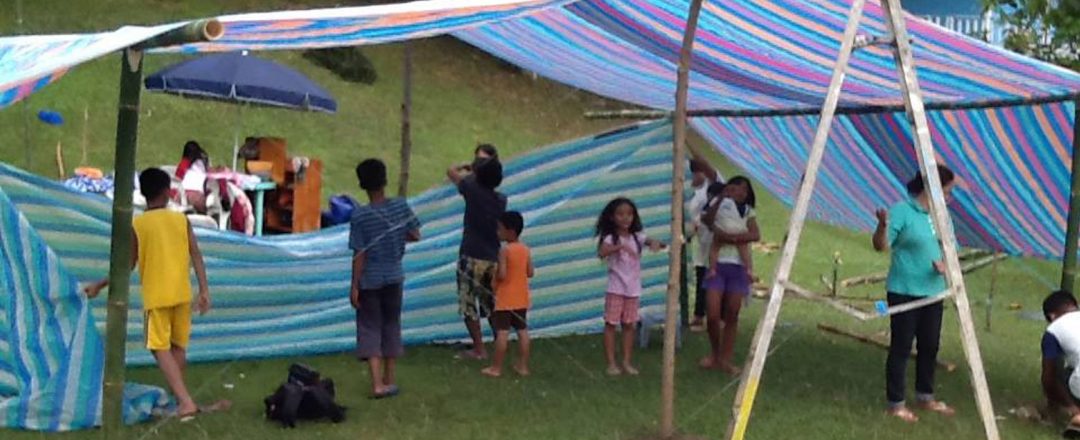

We are so excited that you are considering a visit to our home in the Philippines. Every volunteer trip is unique, and experiences will vary greatly. The purpose of this page is to provide you with some guidance about what to expect during your time in the Philippines and to help you be as prepared as possible as you plan your travel to this beautiful country.
The Philippines is an island chain in Southeast Asia that consists of an estimated 7,107 islands with a total land area of 300,000 square kilometers (115,831 sq mi).
Arms of Love is located in Tagbilaran, on the island of Bohol.
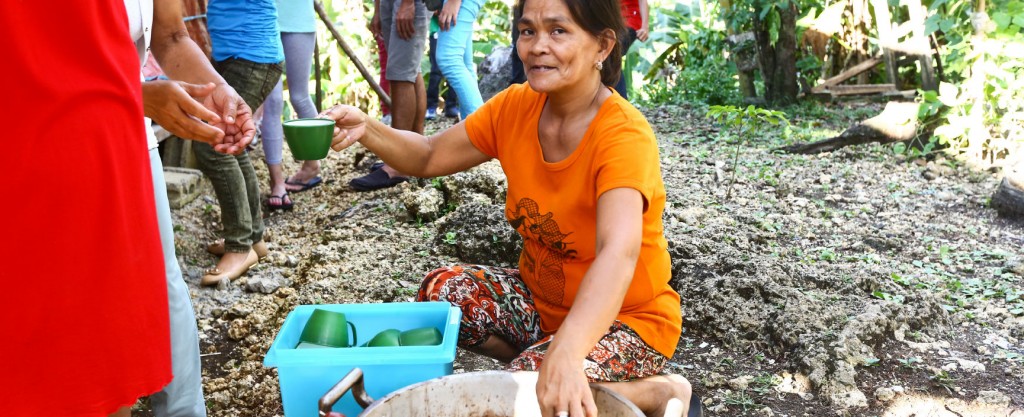
You will need a valid passport with a minimum of 6 months left (until expiration) from the date of arrival into the Philippines. It is also important to have at least two empty pages left before departure. If you do not currently have an international passport, it is imperative that you apply for one as a first step. For more information, please visit: travel.state.gov/passport. It typically takes 4-6 weeks (processing time) and the current cost is $110.
You will not need to obtain a visa prior to entering the Philippines for stays of 30 days or less. For stays longer than 30 days, please visit the Filipino Immigration website at: philippine-embassy.org.sg/consular/visa/important-visa-information/ for more information. When entering the Philippines, you will purchase a visa for $22.00. Please have a crisp bills ready when you arrive in the Manilla airport.
If you are not a U.S. Citizen, please know that you will need your passport as well as your Permanent Resident Card to travel to/from the Philippines from the United States.
Please have three-colored copies of your passport (one copy that you will leave at home, one that you will carry on you, and one for your team leader).
It is suggested that you be current with certain shots:
– Hepatitis A and B- Measles-Mumps-Rubella (MMR)
– Typhoid and Tetanus-Diphtheria-Pertussis(Tdap) vaccine at minimum
– Although Malaria is not a high risk, some people also prefer to the medication to prevent malaria. Many people have adverse reactions to malaria medication so you need to assess the risks carefully.
You can access more information regarding health precautions when traveling to The Philippines at the Center for Disease Control website: http://wwwnc.cdc.gov/travel/destinations/traveler/none/philippines. You can obtain vaccines through your doctor, health clinics at airports, the travel clinic at your local hospital or through your local health department. Vaccinations, depending on state of residence, insurance carrier, and the needed vaccines, can range from $50-$150.
Do not purchase your airline tickets without first having your trip approved by Arms of Love International. Between team schedules and the children’s schedules, it is important that we book your stay at the appropriate time in the year.
We highly recommend having travel insurance. Typical coverage includes trip cancellation and delay, lost baggage, evacuation in case of medical emergency or natural disaster, medical emergency, travel assistance services, etc. Although there are many insurances, the Top Consumer Review shares that Travel Guard, Squaremouth, In-sure My Trip, and Allianz are the best rated in the industry. Most travel insurance to the Philippines ranges between $50-$65.
Please register your trip with the U.S. Department of State- Smart Traveler Enrollment Program (STEP). By doing this, you will receive the most current information about the Philippines, including current travel advisories. This also allows the U.S. Embassy to know where you are in case of an emergency: travel.state.gov/content/passports/english/go/step/html
The U.S. Department of State also provides information regarding safety tips, current crime rates, current disease information, climate patterns, and relations. It is free to register for your trip.
The Philippines has a tropical climate with warm temperatures year round. The average annual temperature is 27.6 °C (81.68 °F) in Bohol. The average annual rainfall is 211 mm, with July being the driest month.
In order to be the most effective as a team, we recommend that you have a minimum of 6 pre-trip planned meetings. These meetings are focused on team building/unity, information sharing, developing a team schedule based in skill sets and passions, and spiritually preparation. Your team leader has received recommendations for these meetings.
Click here to view our Packing List and Tips!
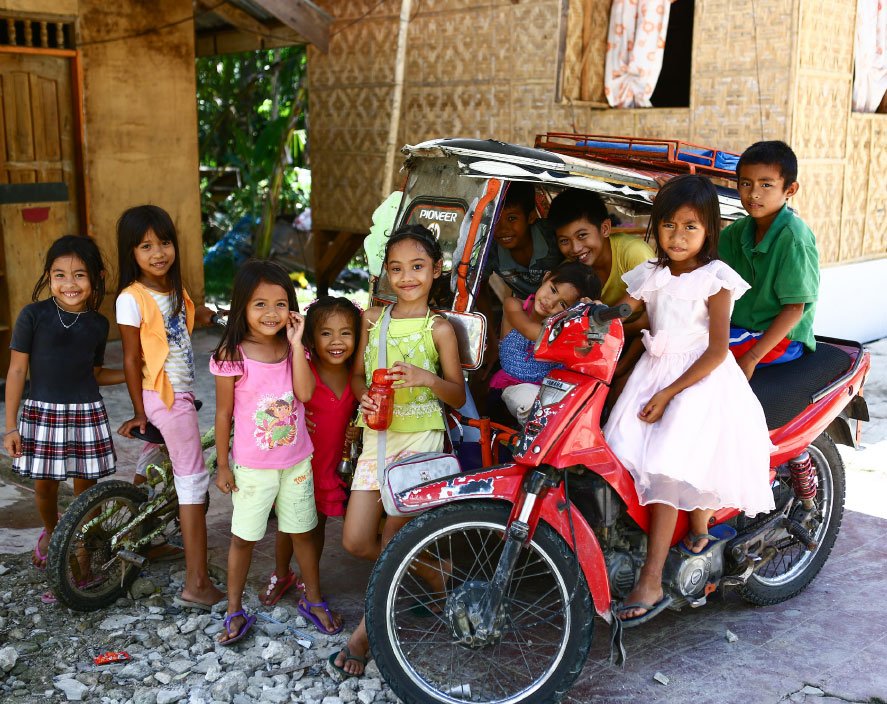
When checking baggage in the U.S., you will receive baggage claim tickets. DO NOT lose them! You will need them in order to leave the Philippines airport with your luggage.
Most airlines allow you to check one piece of luggage free when traveling internationally. When checking a second bag, the charge can range from $40 depending on the carrier. Please account for this in the number of items you bring to the Philippines, as well as how the additional charges are included in your team’s budget.
The best way to get to Bohol is to first fly to Manila then take a connecting flight to Tagbilaran City, Bohol. Philippine Air is the most common airline carrier to the Philippines, but there are other airlines that may be cheaper depending on dates and circumstances. Tickets may be obtained through the airlines, a travel agent, or through Internet websites such as Travelocity or Expedia. Mango Tours has provided low rates in the past, as well as LBC, a company that specializes in travel and shipping to the Philippines.
The airline will distribute 2-page customs forms while you are flying for you to complete before landing. Paperwork includes a customs form and an immigration form.
The paperwork will as you for your address in the Philippines, it is:
Purok5, Bgy. Lourdes, Cortes, Bohol
Landline: 038-4160439
Cell (Smart) : 0918-3357173
Cell (Globe) : 0915-466-1246
Cell (Sun) : 0932-7506446
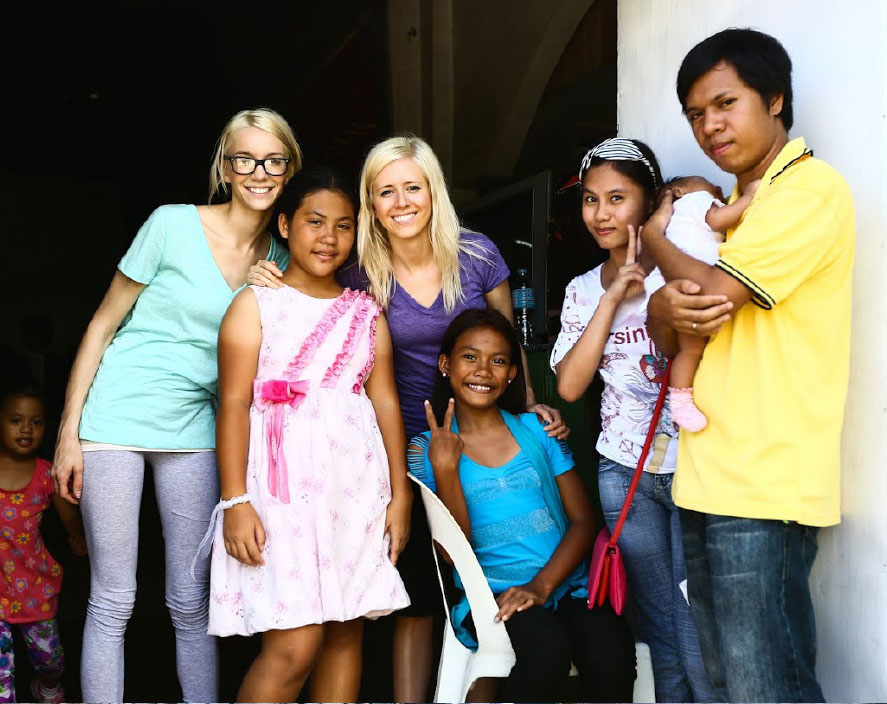
Upon landing in Manila, you will prepare for your connecting flight to Tagbilaran City on Bohol Island—a one-hour flight. You will follow the signs to immigration where you will show the immigration officer your passport and completed visa paperwork to enter the country. The form you filled out on the plane will be stamped and immigration will keep the top form. Keep the bottom form with your passport. It gives you permission to stay in the country up to 21 days. Do not lose it since you will need to present it to immigration at your departure.
After this, you will pick up your bag and take it to “Customs Examination—Domestic Transfer Baggage” to be loaded onto your connecting flight. You will pay a terminal fee of P200 (although please note, sometimes this does not happen). Sometimes, it is as follows: You will walk downstairs where the baggage is located. The baggage areas can be confusing, and it has a carousel that loops around the room. You will hand your baggage tickets to the airport workers, and point out which luggage is yours. They will remove the baggage from the carousel, mark it for Tagbilaran, and return your tags to you.
Once the baggage has been marked, you will walk outside of the airport, leaving the International Terminal. You will walk towards the curb (as though you are going to be picked up), and then follow it down to the stairs, where there is the domestic terminal. This is where you need to be. You will go through security again, and then can relax in the domestic terminal until your connecting flight. There are a few restaurants located in this terminal. Once in Tagbilaran, you will walk off the plane into a small terminal. The airport staff will place luggage on a carousel, and you will just need to pick it up and walk outside. The Tagbilaran airport is very small, and only has one two rooms.
After you walk through security, please step outside the building and look to your left. People are not allowed through the gate, so an Arms of Love representative on the other side will meet teams. Look for someone just outside the door holding a sign with your church, group name, or the name of your group leader. The representative will take you to your bus or van where you will load your luggage and depart for Arm of Love, which is about 6 miles away.
While the Philippines are relatively safe to travel in, it is always advisable to stay in groups while traveling in developing countries. The main concern is theft so be sure to keep your money in a place not easily accessible when traveling around town (i.e. in a zipped purse or money belt). We recommend that you do not carry all of your money on you/or in the same place. In addition, once you have arrived at Arms of Love, please keep your passport in your locked team room. This has less to do with theft, and more to do with members losing their passport when out playing in the community/visiting neighborhoods. Be advised that the Philippines is a country prone to natural disasters such as typhoons and earthquakes. To ensure your safety, please respond to any instructions you receive from your team leader or Arms of Love staff members.
The monetary unit in the Philippines is the Peso (P) and the Centavo. 100 centavos = P1. Coin denominations are: 1, 5, 10, and 25 centavos, P1, P5, and P10. Bill denominations are: 20, 50, 100, 500, and 1,000 pesos.Foreign currency may be exchanged in most of the large department stores, airports, banks and authorized money changing shops.In Manila, most large stores, restaurants, hotels and resorts accept major credit cards including American Express, Visas and MasterCard. Traveler’s checks, preferably American Express, are accepted at hotels and large department stores. On Bohol, credit cards acceptance is less predictable. Personal checks drawn on foreign banks are generally not accepted. It is advisable to exchange your US dollars when you arrive in the Manila airport, as you will need pesos during your entire travels in the Philippines. In addition to the monies included in team funds, most individuals choose to bring an additional $100-$150 to purchase souvenirs, snacks, etc. To see the current exchange rate, please visit: coinmill.com/PHP_USD.html (note: the exchange rate can differ based on which bank or money handler you work with).
It is important that you bring clean bills to the Philippines. If your money has tears, writing, marks, or is really old, you may not be able to use/exchange it. Banks can provide you with clean bills by contacting them ahead of time.
Filipino (also called Tagalog) is the national language. English is the business language and spoken widely in larger cities but less so on smaller islands and rural areas. Cebuano (also called Visayan) and Bolanon are the dialects used in Bohol. A Visayan dictionary or phrasebook will be more useful than Tagalog since it is the language spoken by most people on Bohol.
The cost is $40/day per person, which includes lodging and meals in the home. Meals eaten off-site are your own responsibility. The per diem costs are charged for each calendar day you are with us (even if you arrive late or leave early) and will not be reduced if you decide to eat off-site. The meals are typically a modified local dish prepared with the foreigners in mind. Keep in mind that white rice is a mainstay of the Filipino diet … and you will eat a lot of it! Also, most meals also are cooked with garlic.
We will have bottled water for you since the tap water comes from a well on the property and is unsafe to drink or to brush your teeth with. It is fine for bathing, showering and laundry.There are three separate rooms with a shared bathroom/shower (known as the CR, or Comfort Room, in the Philippines). There is also a bathroom upstairs in the office that can be used if necessary. The first room is the only room with an air conditioner. The other two rooms have electric fans. The first and second rooms sleep two people; the third room can sleep four people.
There are no washers and dryers at Arms of Love. All laundry is done by hand and staff is available to assist you. Water and power outages are not infrequent. It is recommended you have bring a converter for 220v, as it is necessary in some outlets.
One of the biggest challenges for American visitors is the high heat and humidity. Drinking plenty of water, keeping a wet bandanna with you to cool your face, and napping in the afternoon can help fight fatigue caused by the climate.
Your Team Coordinator will have a cell phone for emergencies and team coordination needs.
There is landline phone and Internet connection at the main building, both wired and wireless. Weather conditions can greatly affect the Internet connection.
Tagbilaran City has private and public hospitals along with a number of clinics. Keep in mind that this is a developing country so the standard of health care, particularly in Bohol, is not what it is in the U.S. Serious or critical conditions may require transport to Cebu or Manila.U.S. Embassy
U.S. Embassy Manila1201 Roxas Blvd. ManilaPhone: (632) 301-2000 (local 2553)Fax: (632) 301-2469
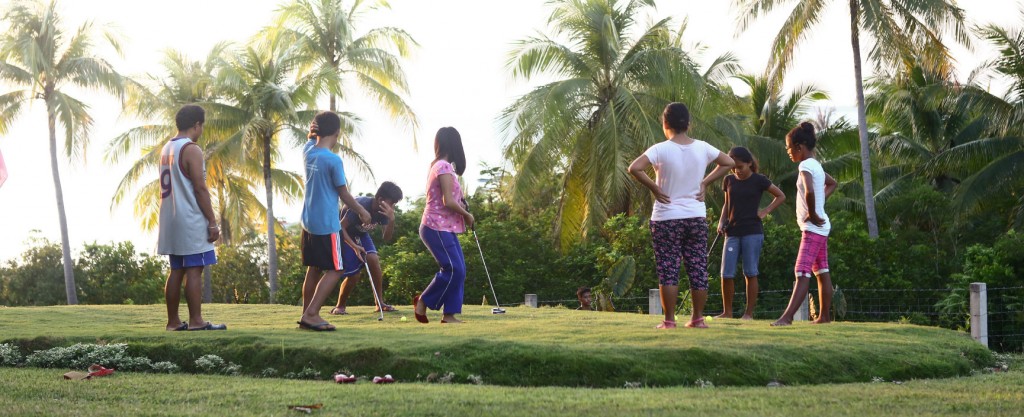
Once you arrive at Arms of Love, you will be assigned rooms and be given a short explanation of the following day’s plans.
Your first full day at Arms of Love is usually a low-key day, since most people arrive in the afternoon (and have been flying for 20+ hours). Plan to be introduced to staff and children, to enjoy a good meal, and then to go to sleep early so you can be rested the following day. You will wake up around 7:30 (or earlier to do devotions, etc.), with breakfast served at about 8:00.
Based on your team leader’s communication, a schedule will have been created for your time at Arms of Love. This schedule intertwines Arms of Love children and staff’s daily commitments, as well as the team’s agenda. The children have a set schedule, which needs to be respected. Please be prepared for flexibility and change!
Sunday’s schedule includes attending/serving at a local church and preparing for the week’s ministry. On Monday through Saturday, your team will engage in work projects, spending time with the children, etc., depending on the skills of the team members, needs at Arms of Love (for repairs, construction, maintenance and so on), and available funding. The team provides supplies and funding for the week’s ministry.
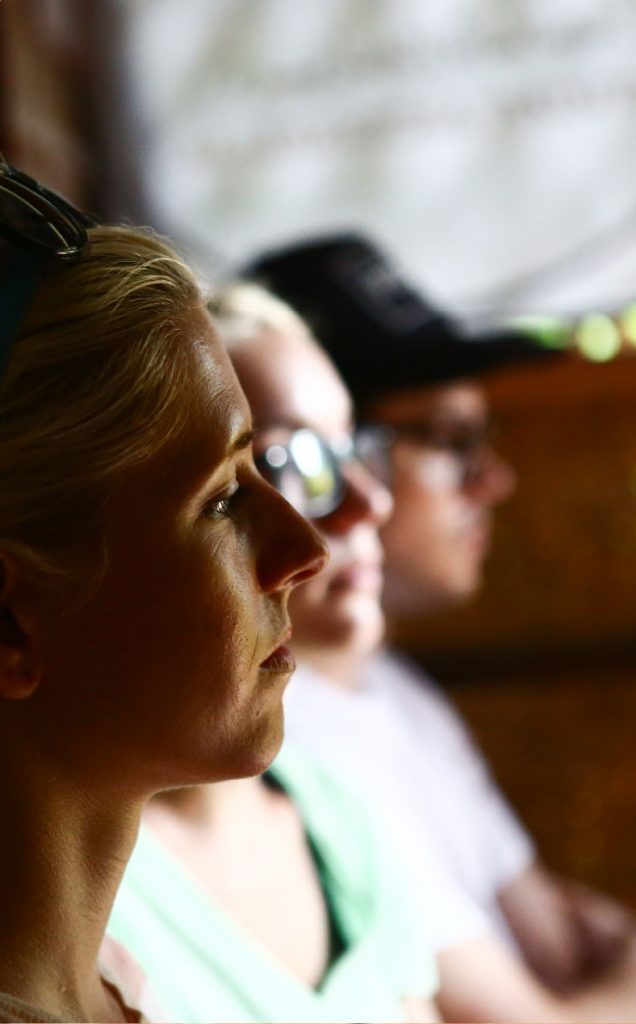
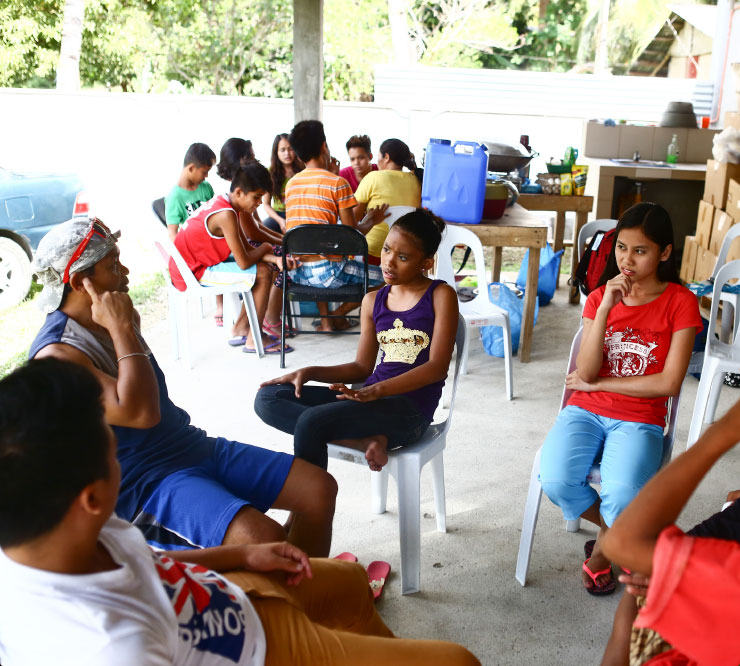
In the Residential Program, we currently have 26 children and youth between the ages of 8-17 years old living at Arms of Love. There are five homes (Perlas House; Sardonyx House; Sapphire House; Crystal House; and House of Love). The first four homes include house parent couples, who promote a family environment through meals, chores, activities, and healthy expressions of love and care; and support staff who create and implement programs that reinforce the importance of holistic health through quality health and hygiene, academic excellence, spiritual development, mental health, etc. The House of Love is where our Director, Randy, lives, where teams stay, as well as where the Pre-Independent Living Program teenagers begin their transition into independence, with a support staff worker.
In 2013, our mission was expanded in the Philippines in response to the devastating aftermath of the 7.2 magnitude earthquake. Arms of Love partnered with churches, local government, and non-profit organizations to create the Community Care Program in the Philippines. Through this collaborative effort we are able to conduct supplemental feeding programs, as well as help families and malnourished children in the four counties on Bohol that were the most impacted. Currently, we have three programs, feeding nearly 80 children, with a fourth opening soon.Independent Living Program
The Independent Living Program currently has 18 young adults pursuing higher education and transitioning into adulthood. One of the essential investments for our children is their education. Unlike traditional foster care models, Arms of Love’s goal is to inspire our children to discover their passions, and provides support to attend college or trade school. Through this model, we seek to transform the lives of our children and have a long-term solution to poverty in their communities.
We currently have several project needs identified. Please converse with Jess Burge, the Director of Partnerships & Programs, regarding your team, and the possibilities available at Arms of Love. Past work projects have included: painting; concrete; helping with the piggery; tiling; maintaining the property; gardening; and constructing the chicken coop. Work projects can range from $400-$4000.
The children are in school from mid-June through the end of March, so they will be gone during the day Monday-Friday at this time. They also have Saturday classes once each month. Summer break is April through mid-June and there is more time to interact with the children.
The children would love to have you join them in basketball, volleyball and ping-pong. They would also love for you to teach them new songs and games. Most of the kids can play the guitar and are excited to learn something new. Crafts are a favorite activity for both boys and girls. The girls especially like beading and jewelry making and, believe it or not, the boys really like small cross-stitch needlework projects that they can frame.
More than anything else, your presence at Arms of Love is what the children are most excited about. Visitors from overseas are a source of encouragement and joy for these kids. They will love to sit and talk with you about what life is like where you live, listen to you share about your likes and dislikes, and your spiritual walk. They love receiving guidance and for you to pray with them. They also love being read to, although keep the stories simple when reading in English. Time, attention and a ‘listening ear’ are what is most appreciated.
You might want to put on a sports tournament with the kids, create a spiritual training for staff, or even prepare a meal! We welcome ideas during the team planning and conversations with Arms of Love staff. The cost for supplies is in addition to your room and board cost.
Spending a day out with children would be a special treat, perhaps somewhere they have not visited yet such as the Danao Adventure Park. The park offers nature trekking, rappelling, caving and other outdoor activities. Also, Sagbayan Peak is a wonderful place for children, featuring a butterfly dome, swimming pool with slides, extensive flower gardens and a playground resembling a Disney theme park. Another idea is a day at the park, with lunch delivered by the local fast food chain, Jollibee (a favorite of the children’s that they don’t often get). The prices are very reasonable (hamburgers are about 50 cents and a large full meal with drink is $1.50-$2) and the delivery is free.
Another suggestion is an overnight tent camp out with the kids and staff. Games, prizes, a campfire and special food could be offered. This can be done inside the Arms of Love compound. Many teams enjoy having a party with the kids. The additional cost (sponsoring the event) amounts to purchasing some special food for dinner for the kids (pizza or hot dogs) and maybe a piñata and candy. Estimated cost: $400
It is also possible to take the kids to the beach, to a water park, on a sightseeing trip, or even to volunteer in the community. Estimated cost per activity: $300-$550
Costs for such events can be provided and estimated by Jess Burge.
The children attend a morning service at 9:30am on Sunday. Please let us know in advance if your group has any special skills such as evangelical dramas, songs or puppets so that we can make arrangements with the church for your presentation. This would be a welcome part of the service.
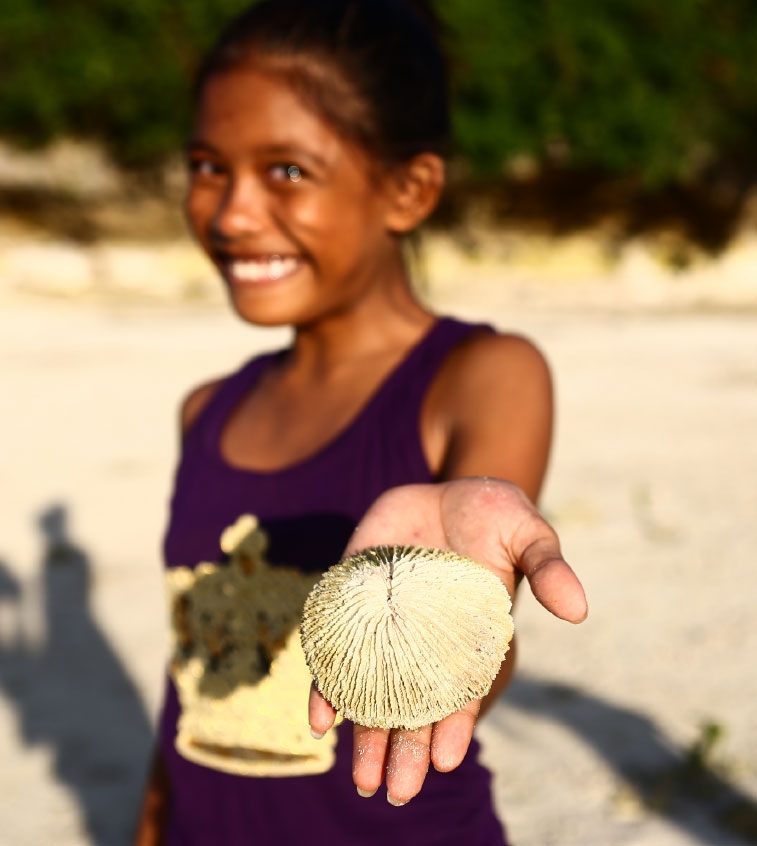
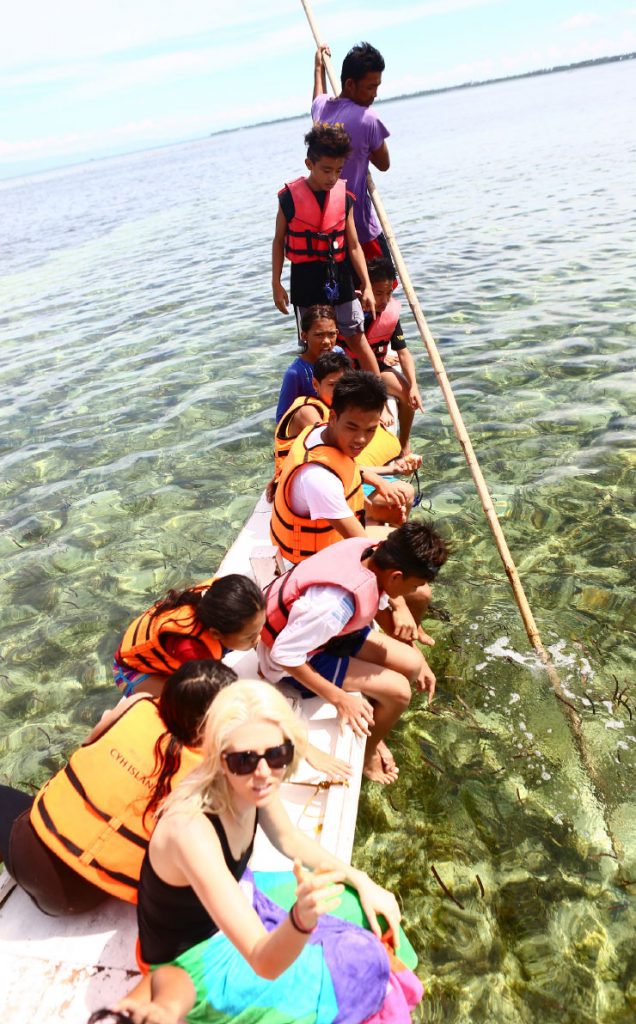
Many teams will incorporate some sightseeing into their trip. Below, we have listed a few of the beautiful sites located on the island of Bohol/close to the island:
Panglao Island – The best Bohol attractions for most visitors are the pristine white sand beaches and clear aqua-colored water. The most famous is Alona Beach, an 800-meter stretch of white powdery sand located at the south end of Panglao Island. Here you will find many full service beach and dive resorts at very low prices compared to the US. They also offer tours to Balicasag and Pamilacan Islands, famous for their beaches, diving and wild dolphins. You can also visit the Bohol Bee Farm—a lush, natural organic garden and resort/restaurant featuring hand-woven native baskets, purses, hats and fabrics, as well as condiments and salads made from lettuce and herbs from the Arms of Love Farm!
Chocolate Hills – Bohol’s most famous attraction, these mountains are named for their shape and color: numerous tall, rounded lumps rising abruptly out of the ground, covered in brown grass in the summer making them look like chocolate kisses. Climb the stairs to the lookout area and you will be presented with a breathtaking view of these hills amidst the endless rice fields of Bohol.
Tarsiers – Several nature preserves fairly close to Arms of Love feature the tarsier, the smallest primate in the world and unique to the island of Bohol. Only a few inches tall, with large round eyes, these shy creatures can be viewed close up in their natural habitat.
Loboc River – Home of the famous Loboc Children’s Choir, this wild and scenic river winds through southern Bohol. Take a river cruise on a floating restaurant and observe native dancing and singing—especially beautiful at night with twinkling lights along the shoreline.
Other – Bohol has many gorgeous rivers and waterfalls scattered throughout the island that are easily accessible. For those interested in history, there are also numerous old churches dating from as far back as the 16th century that are well preserved and available to tour.
When working on your schedule with the Arms of Love staff, please notify us if you would like to schedule a team day.
Example of a Team Participant Cost (for a team of 10):$1200 (flight from LAX to Tagbilaran)$45 (International Travelers Insurance)$22 (Visa)$400 ($40 per day for $10 days/nights)$60 (Transportation – $600 for the group/team of 10)$250 (Program Activities)$140 (Work project)$75 (Team Day)Estimated cost of trip per person in this example would be: $2,192
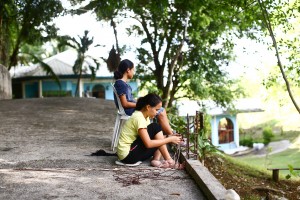
The kids listen to Christian contemporary and worship music and would love new CD’s. They enjoy watching wholesome movies as well (check with staff ahead of time to see what DVD’s they already have). While the Arms of Love library is well stocked with books in English, English is still difficult for many of the kids to understand well. Some books in Tagalog or Visayan would be greatly appreciated. Also, bibles in English would be treasured, since they like to learn bible verses in English as well as Visayan. Daily devotional books for children and teens are needed for the staff and house parents to use with the children—English or Visayan. Books and bibles are much cheaper here than in the US, so if you would like to donate books it would be best to wait until you are here and make a trip to the bookstore. More board games would be a welcome addition (they already have Candyland, Chutes & Ladders and Hi Ho Cherry-O).
Other items the children would enjoy are balls of any kind, large or small; balloons and punch balls; small toys; cards or book-marks with Bible verses, bracelets, hairbands and clips for the girls; school supplies, hats, t-shirts. A small amount of candy is fine, but we try to limit the amount of refined sugar they consume. A craft kit for each of the 5 homes would be appreciated, containing a large pair of scissors, colored pencils and pens, scotch tape, crayons, construction paper, ruler, stickers, glitter, pipe cleaners, etc. Items should be given to our Director so that our staff can determine the best way to distribute the gifts.
Clothing, shoes and socks in all sizes are an ongoing need. Keep in mind that the children are smaller for their ages than US children.
The airport in Tagbilaran is small. When you enter the airport you should be able to easily locate your airline’s ticket counter. As a general rule, you should plan to arrive at the airport at 2 hours prior to your flight so you can check in, go through passport control and security, pay the 100 peso exit fee, give them your visa, and board your flight without stress.
When you fly to Manila, you will go from the Domestic terminal to the International terminal. You will go through the customs line, pay the 550 pesos and give needed forms, and then wait for your flight.
We want to welcome you home from your trip! In addition to loving on our kids, your healthy transition is also very important to us. Jess encourages a phone conversation with you to process and provide feedback. There is also transition activities outlined here. It is important that you take time to process your experiences and engage in community stateside. Many times individuals have a difficult time “putting into words” the emotions they are experiencing. We encourage you to journal and stay connected to God’s promises as you begin to process through your experience abroad.
We suggest downloading our Filipino Cheat Sheet to learn more about the culture and history of the Philippines.
We believe prayer is powerful! Get involved by praying for children who are orphaned, abused or living in extreem poverty around the world. Learn more about being a partner in prayer!